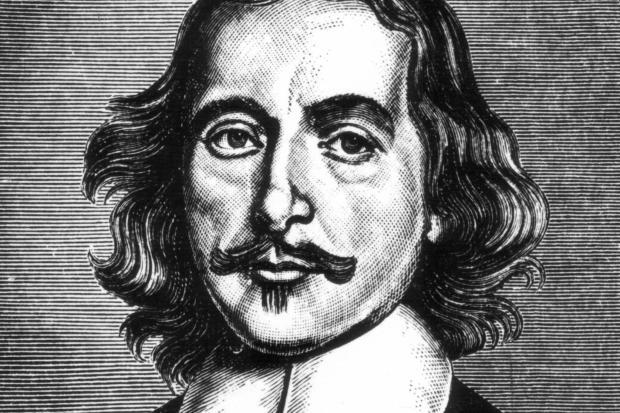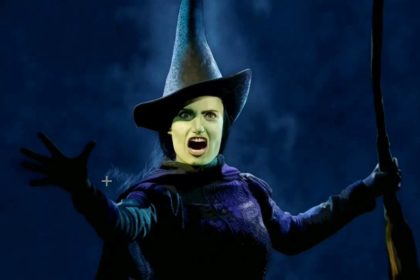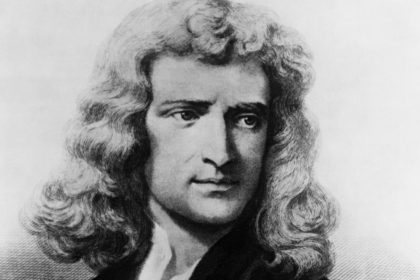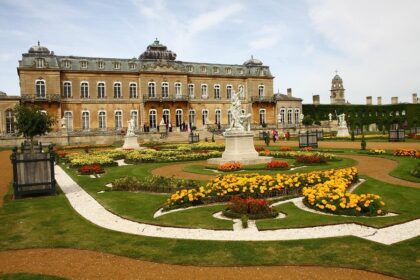Otto von Guericke was a German scientist, inventor, and politician. His major scientific achievements were the establishment of the physics of vacuums, the discovery of an experimental method for clearly demonstrating electrostatic repulsion, and his advocacy of the reality of “action at a distance” and of “absolute space.” Take a look below for 30 more strange and interesting facts about Otto von Guericke.
1. He was a profoundly spiritual man in the Dionysiac tradition, as were many natural scientists of the Enlightenment and connected his idea of the “vacuum” of “space” to an infinite divine Allness-Nothingness.
2. Guericke was born to a patrician family of Magdeburg.
3. He was privately tutored until the age of 15.
4. In 1617, he began studying law and philosophy at the Leipzig University.
5. In 1620, his studies at Leipzig were disrupted by his father’s death.
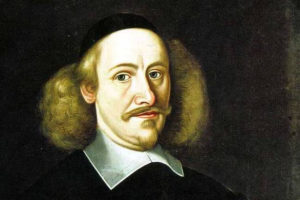
6. He briefly returned home before continuing his studies at the Academia Julia in Helmstedt and the universities of Jena and Leiden.
7. It was at Leiden that he first began attending courses on mathematics, physics and fortification engineering.
8. His education was completed by a nine-month Grand Tour to France and England.
9. On his return to Magdeburg in 1626, he married Margarethe Alemann.
10. Before Margarethe’s death in 1645, they had three children together: Anna Catherine, Hans Otto, and Jacob Christopher.
11. His two kids, Anna Catherine and Jacob Christopher, both died in infancy.
12. Von Guericke later remarried to Dorotha Lentke in 1652.
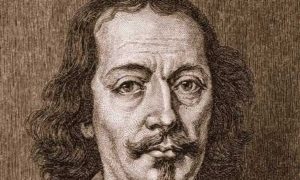
13. Guericke’s political career began upon his return to Magdeburg in 1626.
14. He and his family were educated and well known. His father and his grandfather had been mayors of the city, which led to Guericke being appointed an Alderman of Magdeburg.
15. He was forced to flee Magdeburg during the Holy Roman Empire’s attack on the city in the Thirty Years’ War. This attack destroyed most of the city, as well as Guericke’s personal wealth.
16. Guericke returned to Magdeburg in 1631 and, because of his engineering background, led the rebuilding process of the town.
17. After the rebuilding, he became a master brewer to rebuild his and the town’s wealth.
18. In 1646, he was elected as Magdeburg’s Burgomeister, which is similar to mayor.
19. He remained in the position of mayor for more than thirty years, until his retirement from office in 1678, after much pressure from younger politicians.
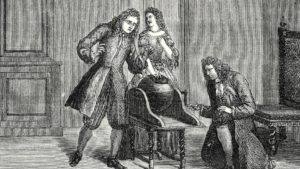
20. During his time in office, he went on many diplomatic missions and met with many kings and emperors.
21. In 1666, Guericke was given aristocratic status by Emperor Leopold I, giving the “von” title to his name and changing the spelling of his last name form “Gericke” to “Guericke.”
22. Guericke used both his political status and scientific knowledge in tandem to make political gains for his town.
23. His demonstrations of his inventions, such as the air pump and electrostatic generator, were used to impress his audiences and allow for political communications to unfold.
24. He often would not explain scientifically how his shows worked, leading people to believe in his wizardry, promoting his status as a great leader.
25. Guericke’s first diplomatic mission on behalf of the city, in September 1642, was to the court of the Elector of Saxony at Dresden to seek some mitigation of the harshness with which the Saxon military commander treated Magdeburg.
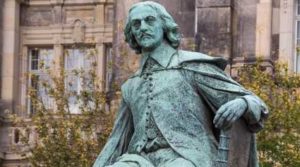
26. In 1648, he represented the city at the treaty delegations following the end of the Thirty Years’ War.
27. During another diplomatic missions to Ratisbon in 1654, Guericke used his invention of the air pump to impress those he was meeting and help sway the meeting in his favor, as well as promote his own scientific advancements.
28. Diplomatic missions, often dangerous as well as tedious, occupied much of his time for the next 20 years.
29. Guericke first started investigating the concept of a vacuum through the use of fire pumps by pumping water out of wooden barrels.
30. In January 1681, as a precaution against an outbreak of the plague then affecting Magdeburg, he and his second wife Dorothea moved to the home of his son Hans Otto in Hamburg. There, he died peacefully on May 11, 1686.

